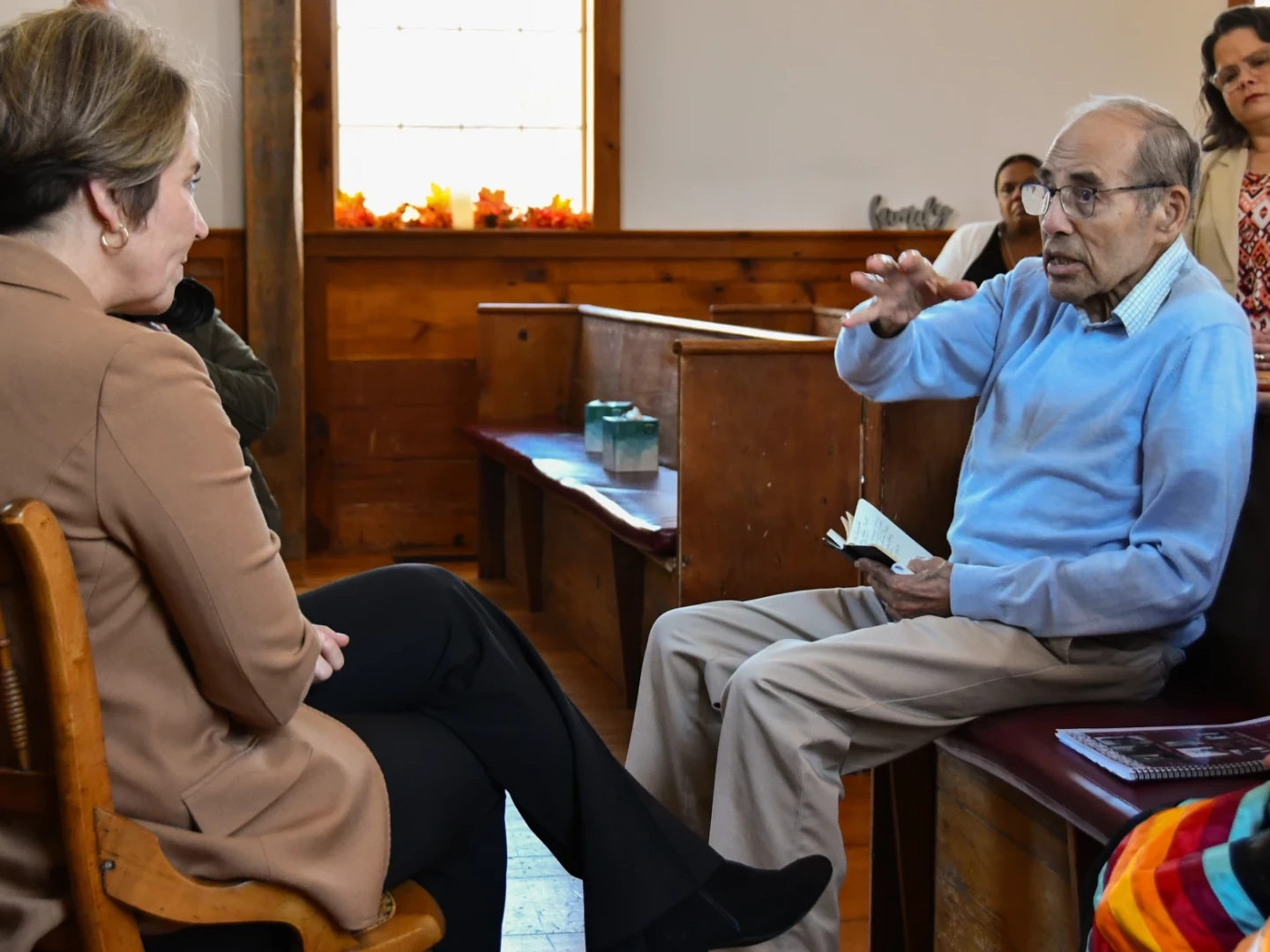The Herring Pond Wampanoag Tribe, headquartered in Plymouth, has received state recognition as a historic and continually present Indigenous tribe.
Gov. Maura Healey granted the designation on Nov. 19 by executive order. The tribe is the fourth in Massachusetts to receive state recognition.
In a written statement, tribe Chairwoman Melissa Ferretti said she was overwhelmed with joy.
“The executive order acknowledges what we already knew,” she said. “It reaffirms our thousands of years of existence here.”
Official recognition means the Herring Pond Wampanoag Tribe and the state of Massachusetts will establish a government-to-government relationship. State agencies will communicate directly with the Tribal Council on matters of concern to the tribe.
Also Tuesday, Healey visited the Mashpee Wampanoag Tribe’s reservation on Cape Cod to mark Native American Heritage Month.

Tribe Chairman Brian Weeden said Healey was fulfilling a commitment she made at the tribe’s request earlier in the year. She met with members of the community and visited the Mashpee Wampanoag Indian Museum, the Old Indian Meeting House, the Weetumuw School, and the tribe’s government center.
“It was very productive from the tribe’s perspective,” he said. “We were excited because it was also the same day that the governor signed the executive order granting state recognition to the Herring Pond Wampanoag Tribe. ... And we feel like it was a great day, not just for Mashpee, but the entire Wampanoag Nation.”
Several Wampanoag leaders met with the governor’s staff a few weeks ago to advocate for the recognition, he said.
“But it’s better for them to come here and actually learn from the community and … understand our history and what we’ve been through,” he said.
Robert Peters, an artist and member of the Mashpee Wampanoag Tribe, said the recognition of a fellow tribe is good to see.
“I think there is a more heightened awareness of our being here, and our history here,” he said. “And I’d definitely like to see it continue.”
Peters is one of several artists whose work is on display at the State House in honor of Native American Heritage Month.
This story was originally published by CAI. It was shared as part of the New England News Collaborative.







